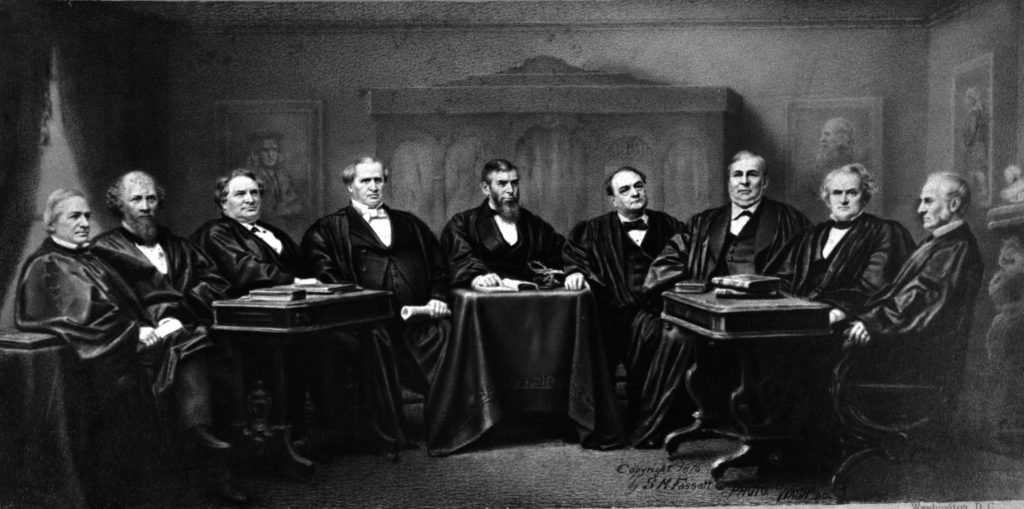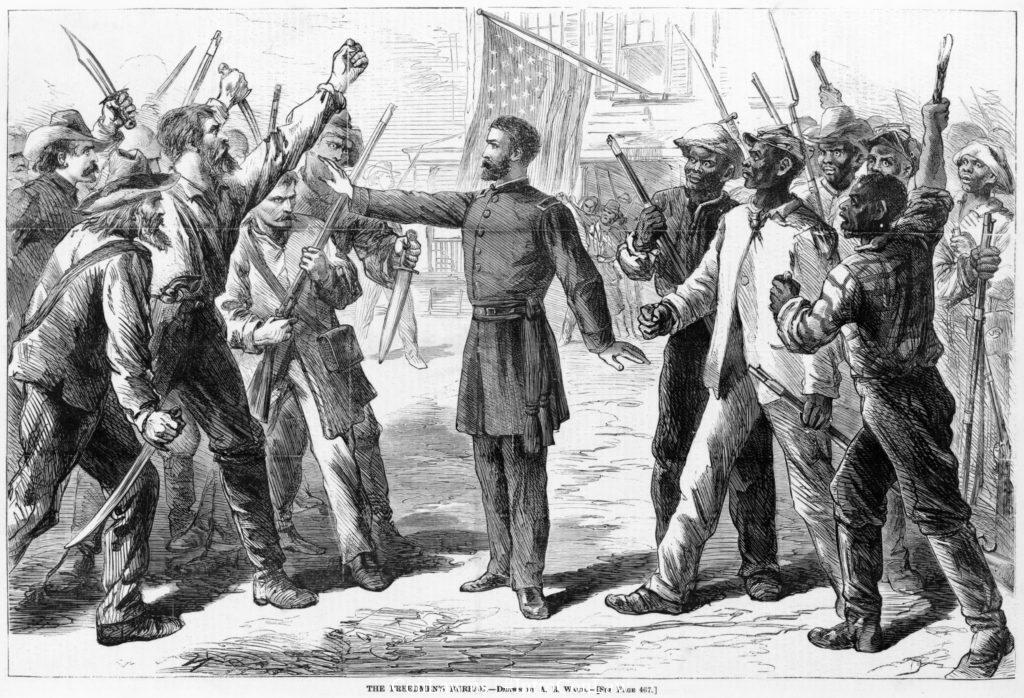





The first two cases, Slaughter-House and Bradwell, involved what could be called unenumerated rights. That is, privileges or immunities that are not expressly stated in the Constitution. The final case, United States v. Cruikshank, held that the Privileges or Immunities Clause also did not bar a state from violating so-called enumerated rights: in this case, rights listed in the First and Second Amendments.
The facts of Cruikshank are gruesome. In 1872, competing Republican and Democratic factions claimed to have won the office of judge and sheriff in Grant Parish, Louisiana. In March 1873, a Republican faction of African Americans seized the courthouse in Colfax, Louisiana. They were armed with the rifles they carried as Union soldiers. One hundred and fifty white militiamen attacked the courthouse. The militia, unable to overcome the armed resistance of the freedmen within, set the courthouse on fire to smoke the Republicans out. More than one hundred freedmen were shot and killed as they fled the inferno, even after they surrendered to the white militia. The slaughter became known as the Colfax Massacre. William Cruikshank, one of the lynchers, was prosecuted in federal court. The indictment alleged that he interfered with the victims’ constitutional rights, including the First Amendment right to peaceably assemble, and the Second Amendment right to keep and bear arms.